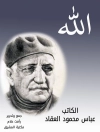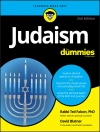In ‘The Kingdom of God is Within You, ‘ Leo Tolstoy articulates a profound exploration of faith, spirituality, and the moral life, merging philosophical musings with a poignant critique of institutional religion. Written during a period of intense personal and spiritual transformation, this work is characterized by Tolstoy’s accessible prose and contemplative tone, encouraging a direct relationship with the divine. Interweaving personal anecdotes and scriptural reflections, the narrative challenges traditional dogmas and advocates for a life led by love, compassion, and non-violence, crucial themes that resonate through his broader literary oeuvre. Tolstoy, a titan of Russian literature, experienced a profound spiritual awakening in the late 19th century, a shift that prompted him to reevaluate the purpose of existence and the role of faith in human life. His grappling with existential questions and moral dilemmas, alongside a critique of societal injustices, embeds this text in the context of his broader life philosophy. Tolstoy’s commitment to pacifism and social justice informed his views, leading him to advocate for a Christianity rooted in ethical behavior rather than ritualistic observance. Readers seeking a deeper understanding of spirituality and ethics will find ‘The Kingdom of God is Within You’ invaluable. Tolstoy’s introspective insights illuminate the path to personal and societal transformation, making this book a timeless call to recognize the divine within ourselves and to embrace the principles of love and humanity.
About the author
Count Lev Nikolayevich Tolstoy, known as Leo Tolstoy (1828–1910), was a Russian writer who is regarded as one of the greatest authors of all time. Born to an aristocratic Russian family in 1828, he is best known for his epic novels ‘War and Peace’ (1869) and ‘Anna Karenina’ (1877), which have been celebrated for their complex characters and detailed depiction of Russian society. Tolstoy’s literary style combines realist narrative with a profound moralistic and philosophical introspection. Beyond his novels, Tolstoy also wrote shorter fiction, essays, and plays. His later works became more didactic as he developed a unique Christian anarchist and pacifist philosophy, which was central to ‘The Kingdom of God is Within You’ (1894). This particular work, banned in Russia for its anti-establishment views, argues for nonviolent resistance and influenced figures such as Mahatma Gandhi and Martin Luther King Jr. Tolstoy’s moral and spiritual writings contributed significantly to his reputation as a moral thinker and social reformer. Despite his aristocratic background, he sought to live a simpler life during his later years, following a moralistic and ascetic philosophy deeply influenced by his understanding of the teachings of Jesus Christ.












